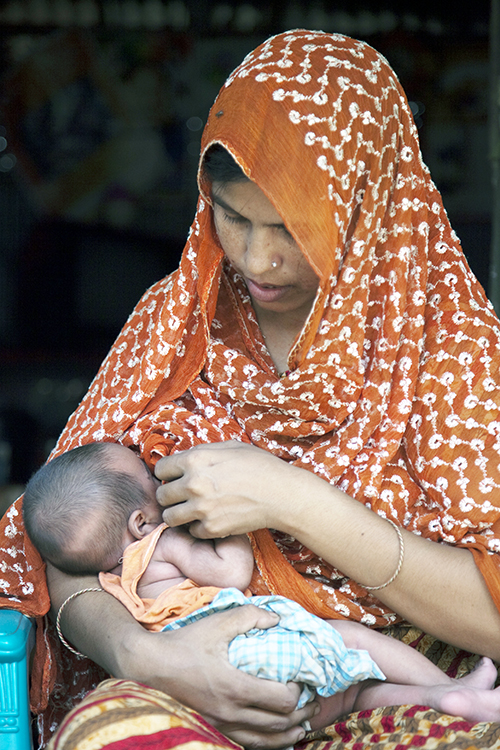Johns Hopkins University and University of Manitoba Faculty Awarded Grant to Study Prelacteals’ Impact on Neonatal Microbiome

In many countries, ritual foods, such as honey and animal milk, are commonly given to newborns before they are first breastfed or early in life. These foods, called prelacteals, may undermine the benefits newborns would otherwise receive from exclusive breastfeeding. Dr. Alain Labrique of the Johns Hopkins School of Public Health and Dr. Meghan Azad of the University of Manitoba received a grant awarded through the Bill & Melinda Gates Foundation “Call-to-Action” to participants of the 2018 Grand Challenges meeting in Berlin, Germany. Building on Labrique and Azad’s prior work, in Bangladesh and Canada, respectively, the study will assess whether prelacteals affect the populations of bacteria in the newborn gut (the microbiome), a first step to understanding how this may affect development and survival.
Immediate and exclusive breastfeeding helps maintain healthy growth in infants and protects them against infections. The gut microbiome is intrinsically involved in both of these processes. However, in Bangladesh and many other low-resource countries, it is a common cultural practice to give newborns ritual foods, like honey or animal milk, before breastfeeding begins. Labrique and Azad hypothesize that prelacteals interfere in the development of an optimal gut microbe, which, in turn, impedes newborn development.
To test this, they will use a long-standing population research site in rural Bangladesh (JiVitA.org) and compare the types and amounts of bacteria in the gut using stool samples from 300 prelacteal-fed or exclusively breastfed infants at 7 days, 28 days and 3 months of life. They will also analyze prelacteal composition to search for pathogens, heavy metal contaminants, as well as examine bacterial populations in the breastmilk and on the skin of the mothers. The study will enable them to quantify the potentially negative impact of this widespread cultural practice, common to over a billion people across the Gangetic floodplain in Bangladesh, India and Pakistan.
Grand Challenges is a family of initiatives of the Gates Foundation fostering innovation to solve key global health and development problems. Meeting participants in Berlin were invited to identify a major global health challenge and submit a two-page proposal describing how they would solve it. “Prelacteals: A Source of Infection and Microbiome Disruption?” will help foster a new collaboration that links cutting-edge population research and state-of-the-art laboratory science, the results of which could lead to important future policy implications.
Labrique, an associate professor in the Department of International Health at the Bloomberg School, is an infectious disease epidemiologist and a globally recognized leader in developing and testing innovations to improve maternal and infant health outcomes. Azad, a Canada Research Chair in Developmental Origins of Chronic Disease and assistant professor in the Department of Pediatrics & Child Health at the University of Manitoba, is an expert in the developmental origins of chronic disease, including asthma, allergies, obesity and diabetes. She uses a trans-disciplinary approach to bridge the traditional pillars of research. Azad also serves as a research scientist at the Children's Hospital Research Institute of Manitoba (CHRIM).
